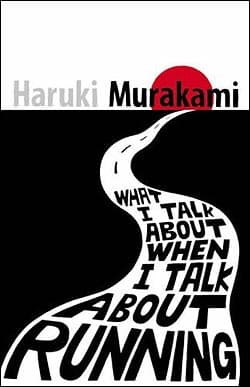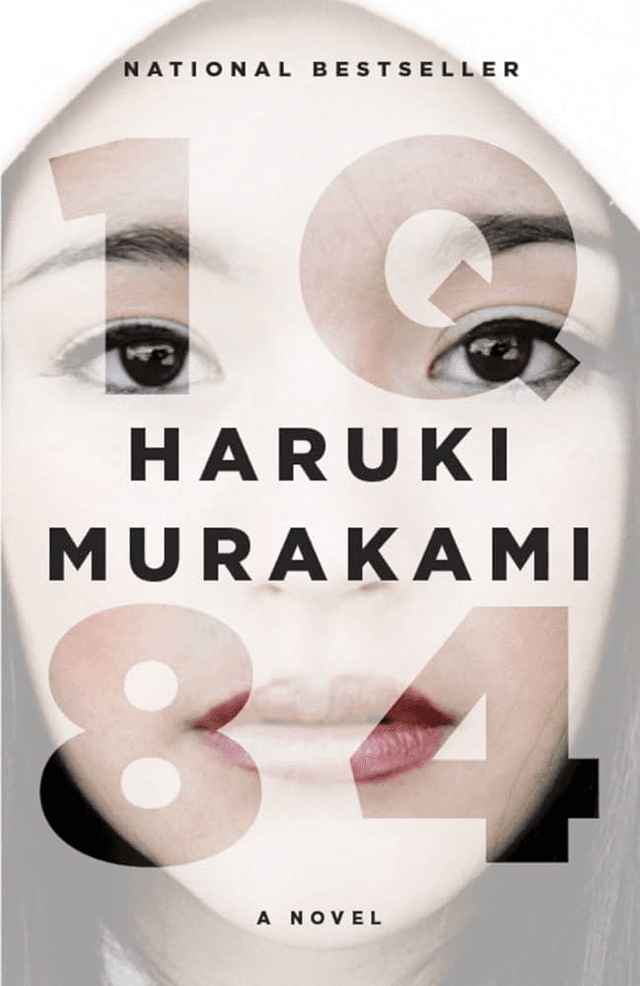What I Talk About When I Talk About Running vs. 1Q84
What I Talk About When I Talk About Running
by Haruki Murakami. In this book, Murakami shares his thoughts and experiences about running and writing. He talks about how he started running in his 30s and how it became a big part of his life. Running helps him think and gives him ideas for his writing. The book is like a diary where Murakami writes about his runs, the races he joins, and how running affects his life and work. He also talks about getting older and how that changes his running. The book is not just for runners but for anyone who enjoys a good story about trying hard and not giving up.
1Q84
She has entered, she realizes, a parallel existence, which she calls 1Q84 —“Q is for ‘question mark.’ A world that bears a question.” Meanwhile, an aspiring writer named Tengo takes on a suspect ghostwriting project. He becomes so wrapped up with the work and its unusual author that, soon, his previously placid life begins to come unraveled. As Aomame’s and Tengo’s narratives converge over the course of this single year, we learn of the profound and tangled connections that bind them ever closer: a beautiful, dyslexic teenage girl with a unique vision; a mysterious religious cult that instigated a shoot-out with the metropolitan police; a reclusive, wealthy dowager who runs a shelter for abused women; a hideously ugly private investigator; a mild-mannered yet ruthlessly efficient bodyguard; and a peculiarly insistent television-fee collector.

Reviews
Reviewed on 2/28/2024
I read this book when I first started running long distance. I was living in Chiang Mai and I'd go this huge park a couple of times a week and just run loops around the lake. At the end of my run I'd grab a milk tea and a banana bread from a local coffee shop and just read a few pages. Great memories of many chill evenings, running and reading about running.
Reviews
| Item | Votes | Upvote |
|---|---|---|
| Easy read | 1 | |
| Motivating | 1 | |
| Peaceful | 1 |
| Item | Votes | Upvote |
|---|---|---|
| No cons yet, would you like to add one? | ||
| Item | Votes | Upvote |
|---|---|---|
| No pros yet, would you like to add one? | ||
| Item | Votes | Upvote |
|---|---|---|
| No cons yet, would you like to add one? | ||
Frequently Asked Questions
'What I Talk About When I Talk About Running' is focused on personal growth through the lens of running and writing, making it an inspiring read for those looking to improve themselves. It offers motivational insights and a peaceful narrative that resonates with readers seeking encouragement in their own journeys. In contrast, '1Q84' delves into complex themes of parallel realities and intricate character connections, which may appeal more to readers interested in philosophical explorations and intricate storytelling rather than straightforward personal growth.
'What I Talk About When I Talk About Running' presents a straightforward narrative that is easy to follow, focusing on Haruki Murakami's experiences with running and writing. It is structured like a diary, making it accessible for readers. On the other hand, '1Q84' features a complex and layered narrative with multiple characters and intertwining plots, which may require more effort to fully grasp. Therefore, for readers seeking a simpler story, 'What I Talk About When I Talk About Running' would be the better choice.
'What I Talk About When I Talk About Running' is more suitable for casual readers due to its easy readability and motivational themes. It appeals to a broad audience, including those who may not typically read extensively. In contrast, '1Q84' is more complex and may require a deeper commitment to fully appreciate its intricate narrative and themes, making it less ideal for casual readers.
'What I Talk About When I Talk About Running' is a book by Haruki Murakami where he shares his thoughts and experiences about running and writing. The book details how Murakami started running in his 30s and how it became a significant part of his life. It serves as a diary where he writes about his runs, the races he participates in, and the impact of running on his life and work. The book also touches on themes of aging and perseverance, making it appealing not just to runners but to anyone who enjoys stories about determination and personal growth.
Pros of 'What I Talk About When I Talk About Running' include it being an easy read, motivating, and peaceful. There are no reported cons at this time.
Haruki Murakami is a renowned Japanese author known for his works of fiction and non-fiction. He has written several bestsellers, including 'Norwegian Wood,' 'Kafka on the Shore,' and '1Q84.' His writing often blends elements of magical realism, surrealism, and existentialism, making his works unique and widely acclaimed. In addition to being an accomplished writer, Murakami is also an avid runner, which he discusses in his memoir 'What I Talk About When I Talk About Running.'
'1Q84' is a novel by Haruki Murakami. It follows the story of Aomame, who realizes she has entered a parallel existence she calls 1Q84, and Tengo, an aspiring writer who becomes entangled in a suspect ghostwriting project. As their narratives converge, the novel explores their profound and tangled connections with a variety of unique characters, including a dyslexic teenage girl, a mysterious religious cult, a reclusive wealthy dowager, a hideously ugly private investigator, a ruthlessly efficient bodyguard, and a peculiarly insistent television-fee collector.
'1Q84' is written by Haruki Murakami, a renowned Japanese author known for his distinct blend of fantasy and reality, often exploring themes of loneliness and existentialism.
The main themes in '1Q84' include parallel worlds, the nature of reality, love and connection, and the power of storytelling. The novel delves into how these themes interweave in the lives of its characters.
'1Q84' is unique for its intricate plot, rich character development, and the seamless blend of the fantastical with the mundane. The novel's structure, alternating between the perspectives of Aomame and Tengo, adds depth and complexity to the narrative.




















